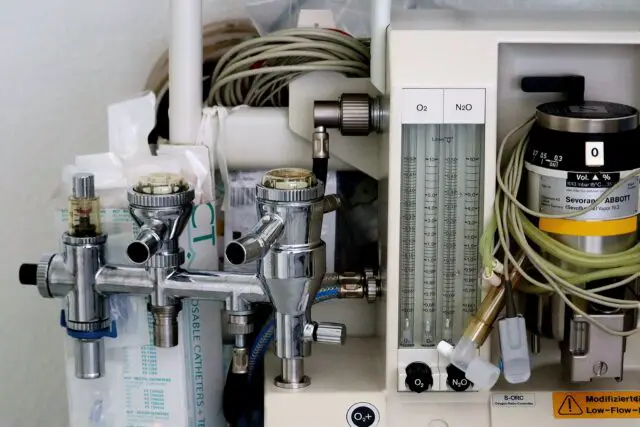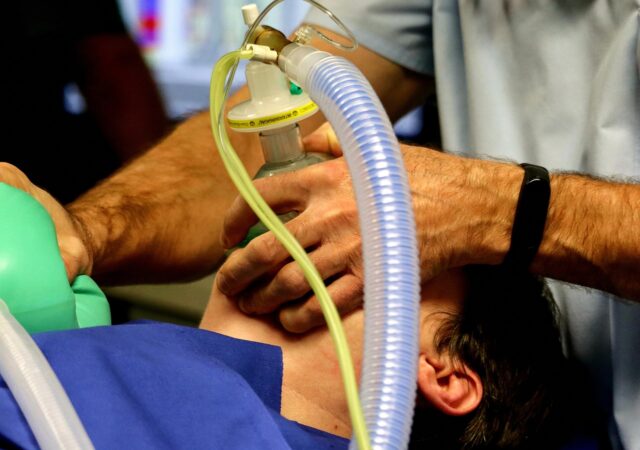In this emergency room nurse job description, you’ll see how (ER) nurses serve a vital role in saving lives and providing essential medical care in a fast-paced environment. With their unique set of skills and knowledge, ER nurses are able to handle a wide array of medical emergencies with professionalism and expertise. From stabilizing patients who have been in accidents to helping people during life-threatening episodes, ER nurses play an important role in helping people in need.
What Does an ER Nurse Do?
ER nurses provide medical care to people who need it in an emergency. They are responsible for assessing the medical condition of people who come into the ER, and they must be able to make quick decisions about the best course of action. ER nurses must be able to recognize signs and symptoms of various medical conditions, and they must be able to provide the appropriate medical care. ER nurses must also be able to treat patients in a calm and professional manner, as well as provide emotional support to patients and their families.
What Skills Do ER Nurses Need?
ER nurses must be highly trained in order to be able to provide the best possible care to patients. They must know how to recognize and respond to medical emergencies quickly and effectively. ER nurses must also have excellent communication skills in order to be able to effectively communicate with patients and their families. ER nurses must also be able to work well under pressure, as they may be required to make quick decisions about treatment. ER nurses must also be able to work with a team of other medical professionals to provide the best possible care.
What Are the Benefits of Being an ER Nurse?
ER nurses have the opportunity to make a difference in people’s lives. They have the chance to save lives and help people in a time of need. ER nurses also have the opportunity to work in a fast-paced environment and gain experience in a wide range of medical emergencies. ER nurses also have the opportunity to work with a team of other medical professionals and gain valuable experience.
How to Become an ER Nurse
In order to become an ER nurse, individuals must first complete a nursing program and obtain a nursing degree. After obtaining a nursing degree, individuals must pass the NCLEX-RN exam in order to become a registered nurse. After becoming a registered nurse, individuals must obtain additional training in ER nursing in order to become certified as an ER nurse. This additional training can be obtained through a variety of sources, including online courses and on-the-job training.
The Future of ER Nursing
As the healthcare industry continues to evolve, so does the role of the ER nurse. ER nurses are expected to continue to provide medical care to people in need in a fast-paced environment. ER nurses are also expected to be able to recognize and respond to medical emergencies quickly and effectively. With the advancement of technology, ER nurses are also expected to be able to use new technology and protocols to provide the best possible care to patients.
Low Competition Longtail Keywords for Emergency Room Nurse
ER Nurse Training Requirements
ER nurse training requirements vary from state to state, but the most common requirements include completing a nursing program, passing the NCLEX-RN exam, and obtaining additional training in ER nursing. ER nurses must also be up to date on the latest technology and protocols in order to provide the best possible care to patients.
Emergency Room Nurse Salary
Emergency room nurses typically earn an average salary of around $70,000 per year. Salaries may vary based on location, experience, and education level. ER nurses may also receive additional benefits such as health insurance, vacation time, and retirement plans.
ER Nurse Duties and Responsibilities
ER nurses have a variety of duties and responsibilities, including assessing the medical condition of patients, providing medical care, recognizing signs and symptoms of various medical conditions, communicating effectively with patients and their families, and providing emotional support. ER nurses must also be able to work well under pressure and make quick decisions about the best course of action.
ER Nurse Skills and Qualifications
ER nurses must have a variety of skills and qualifications in order to be successful. These include excellent communication skills, the ability to recognize and respond to medical emergencies quickly and effectively, the ability to work well under pressure, and the ability to work with a team of other medical professionals. ER nurses must also be highly trained in order to provide the best possible care to patients.
ER Nurse Specializations
ER nurses may specialize in areas such as trauma, pediatrics, or geriatrics. ER nurses in these areas must be knowledgeable about the specific needs of these populations and be able to provide the appropriate medical care. ER nurses in these areas may also need to obtain additional training in order to specialize in their field.
ER Nurse Certification
ER nurses may choose to obtain certification in order to demonstrate their expertise in their field. Certification is available through organizations such as the American Nurses Credentialing Center and the National Board of Certification for Emergency Nurses.
ER Nurse Work Environment
ER nurses work in a fast-paced environment and must be able to handle a variety of medical emergencies. ER nurses must also be able to make quick decisions about the best course of action and provide the appropriate medical care. ER nurses must also be able to work well with a team of other medical professionals.
ER Nurse Job Satisfaction
ER nurses have the opportunity to make a difference in people’s lives and help people in their time of need. ER nurses also have the opportunity to work in a fast-paced environment and gain experience in a wide range of medical emergencies. ER nurses may also receive additional benefits such as health insurance, vacation time, and retirement plans.





